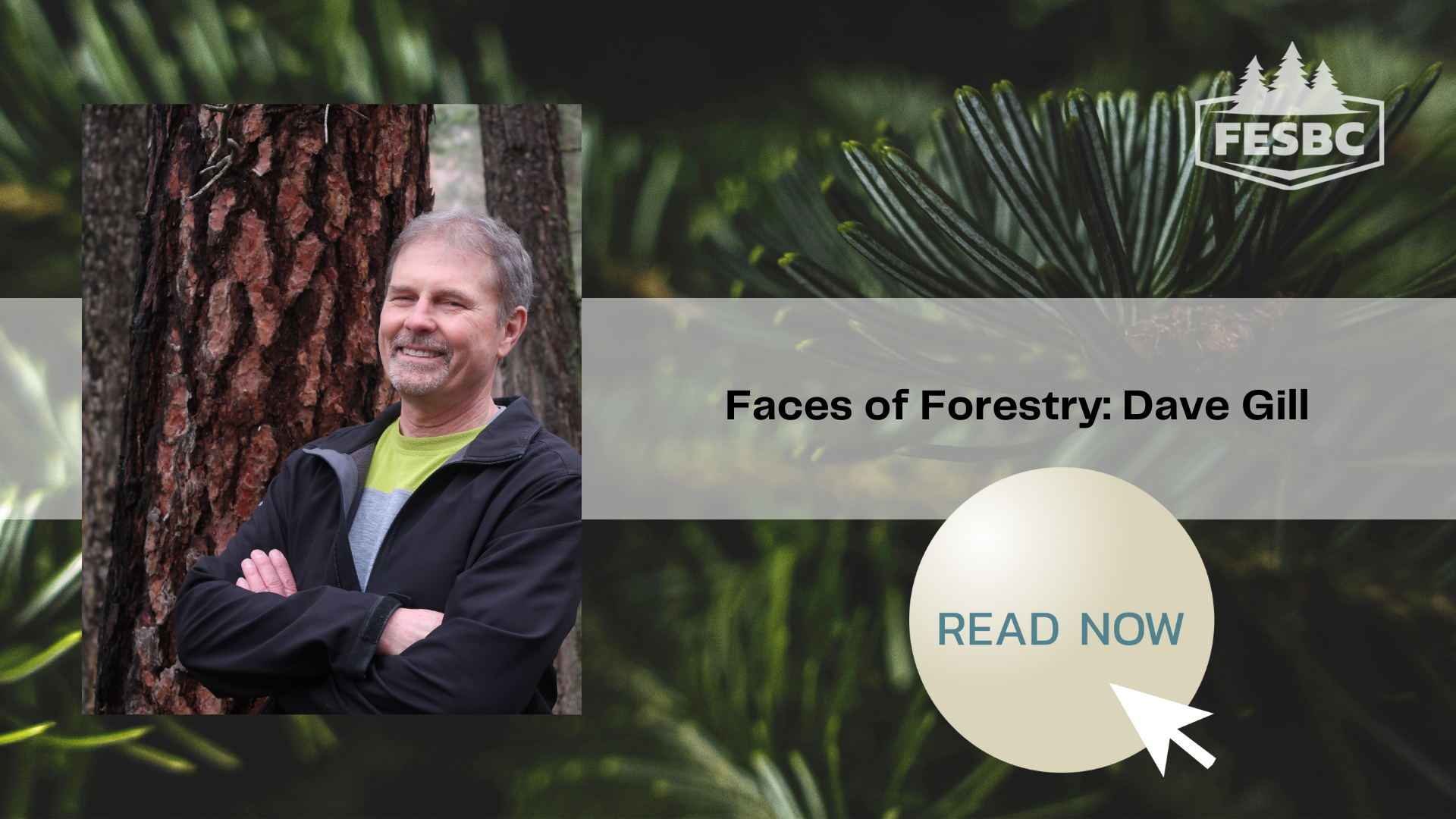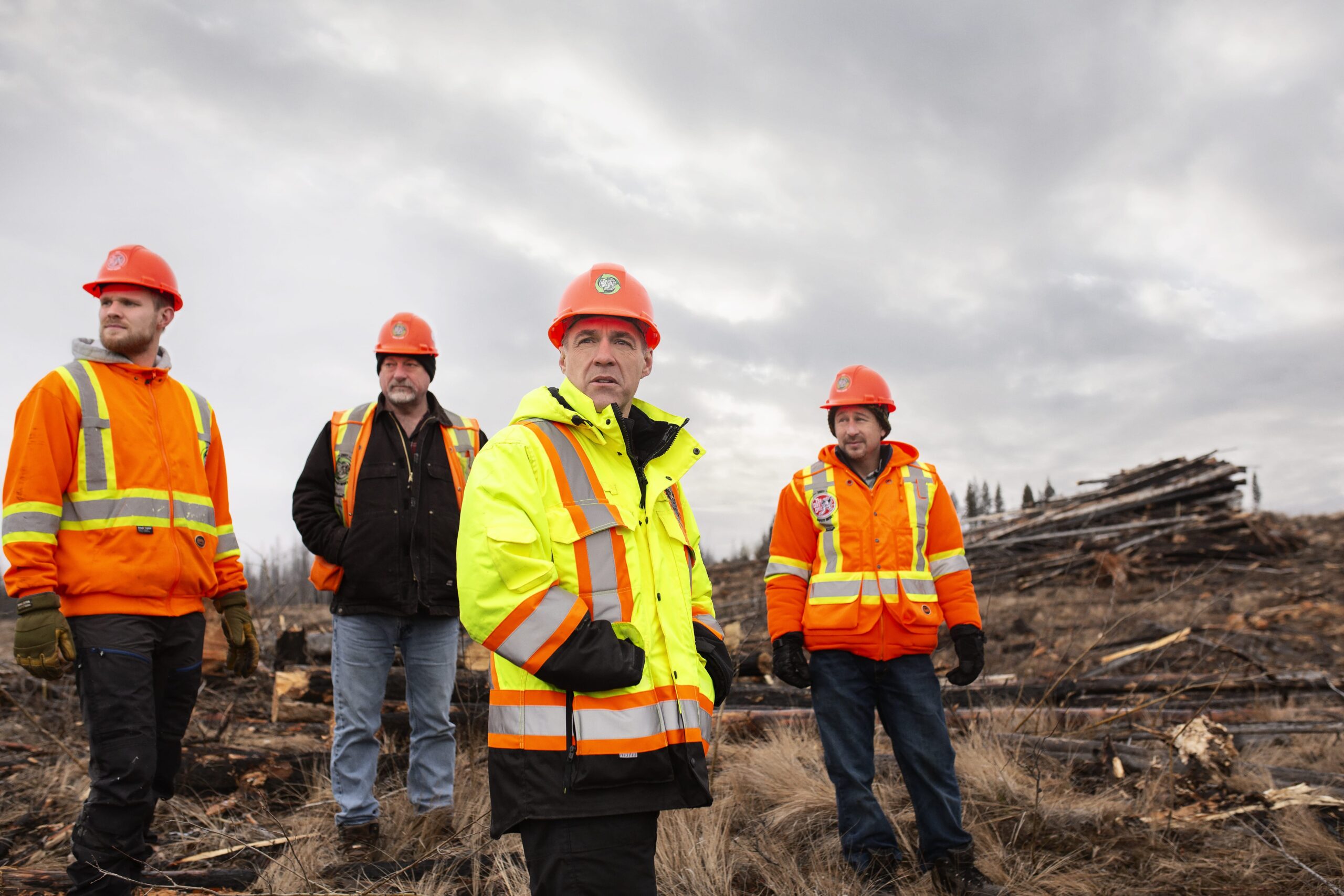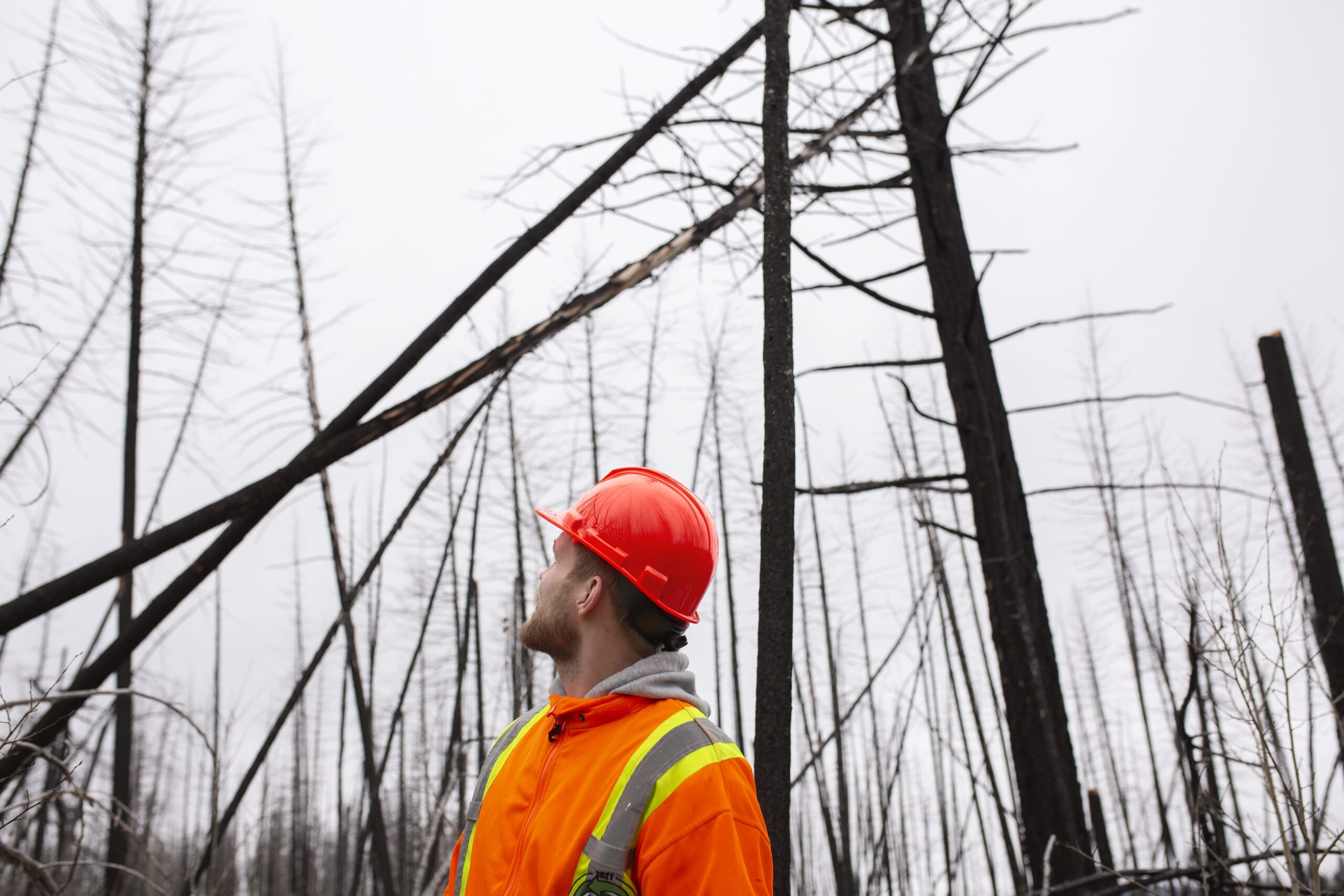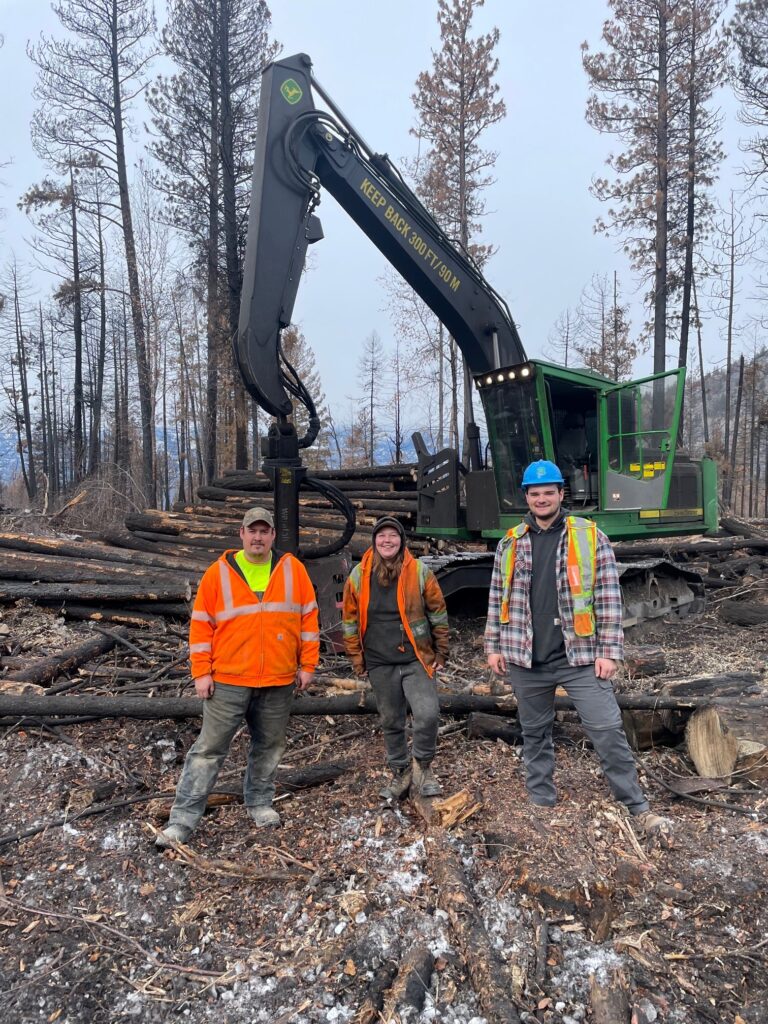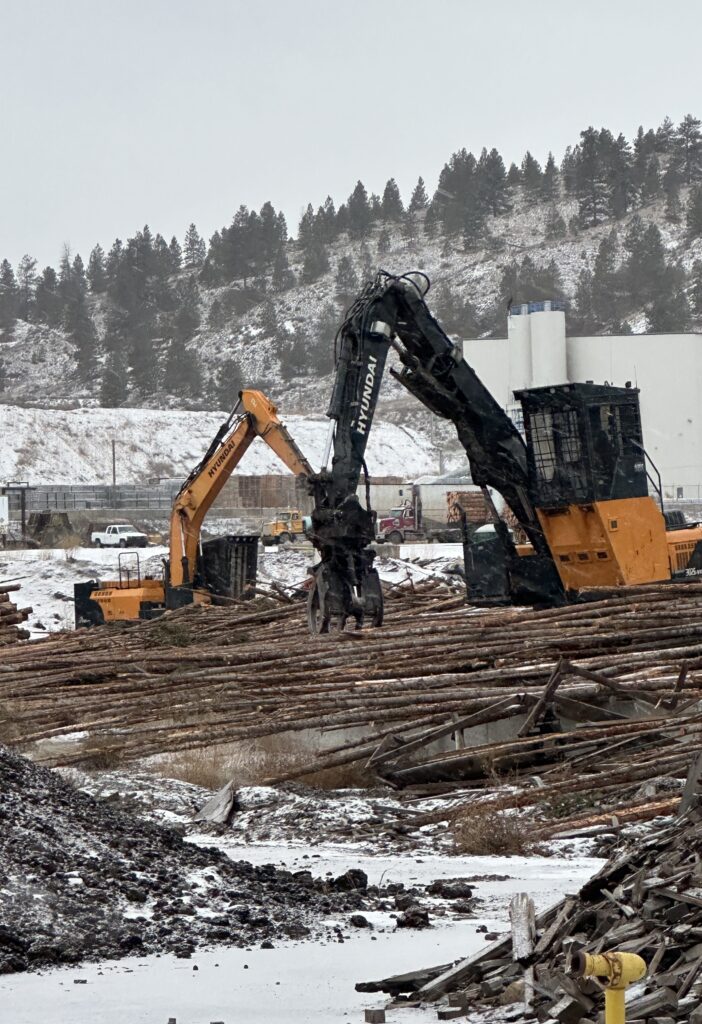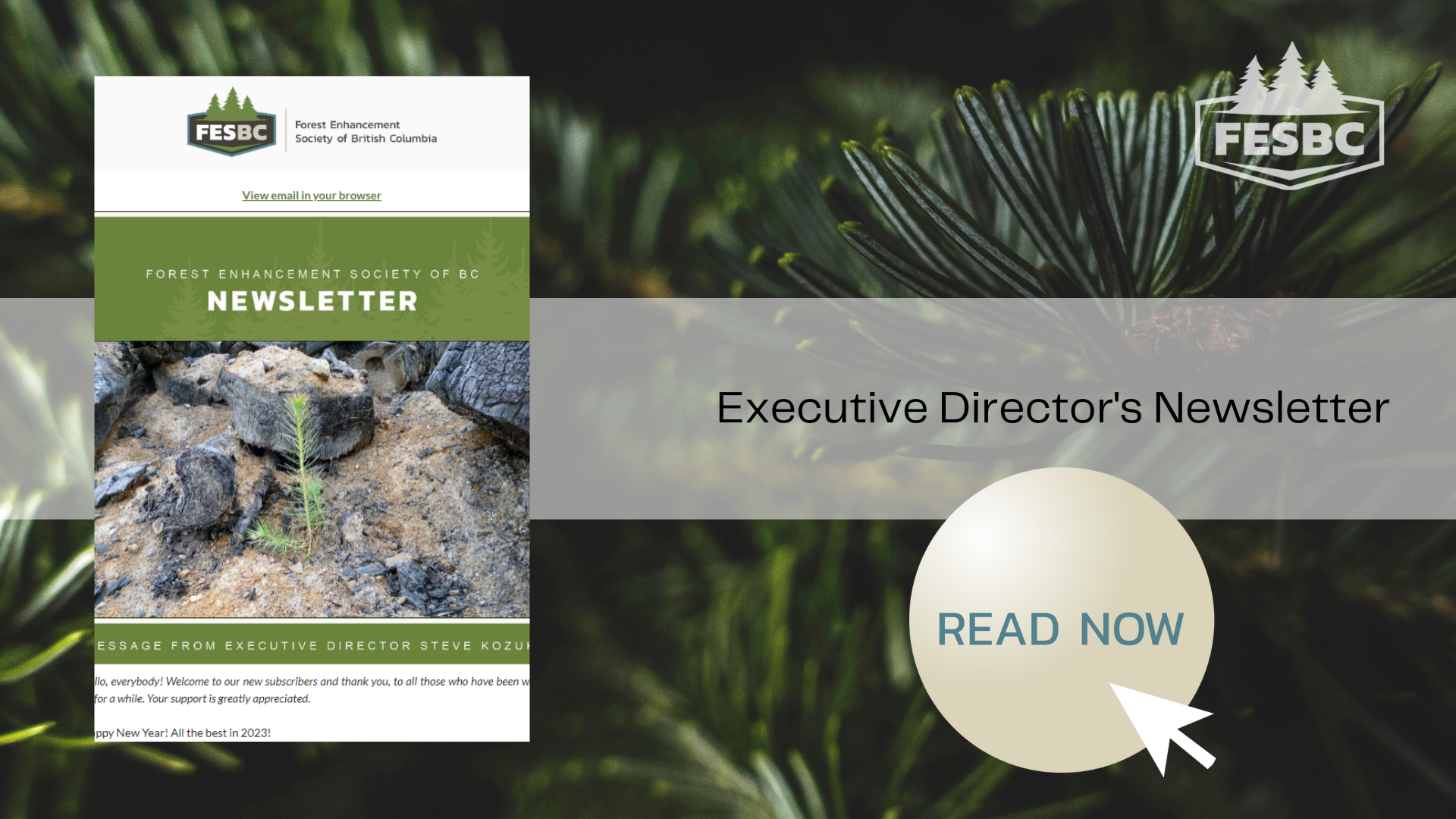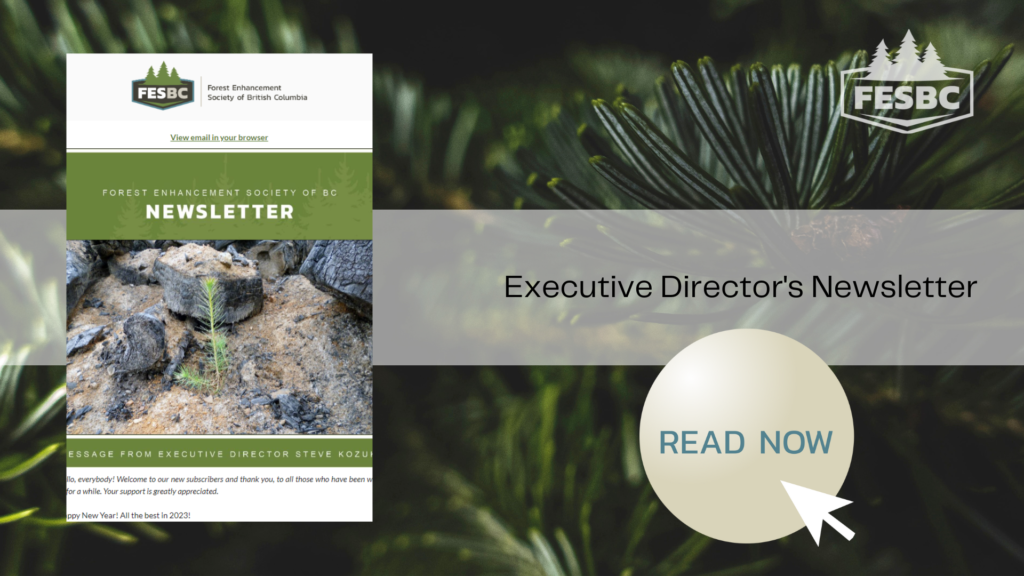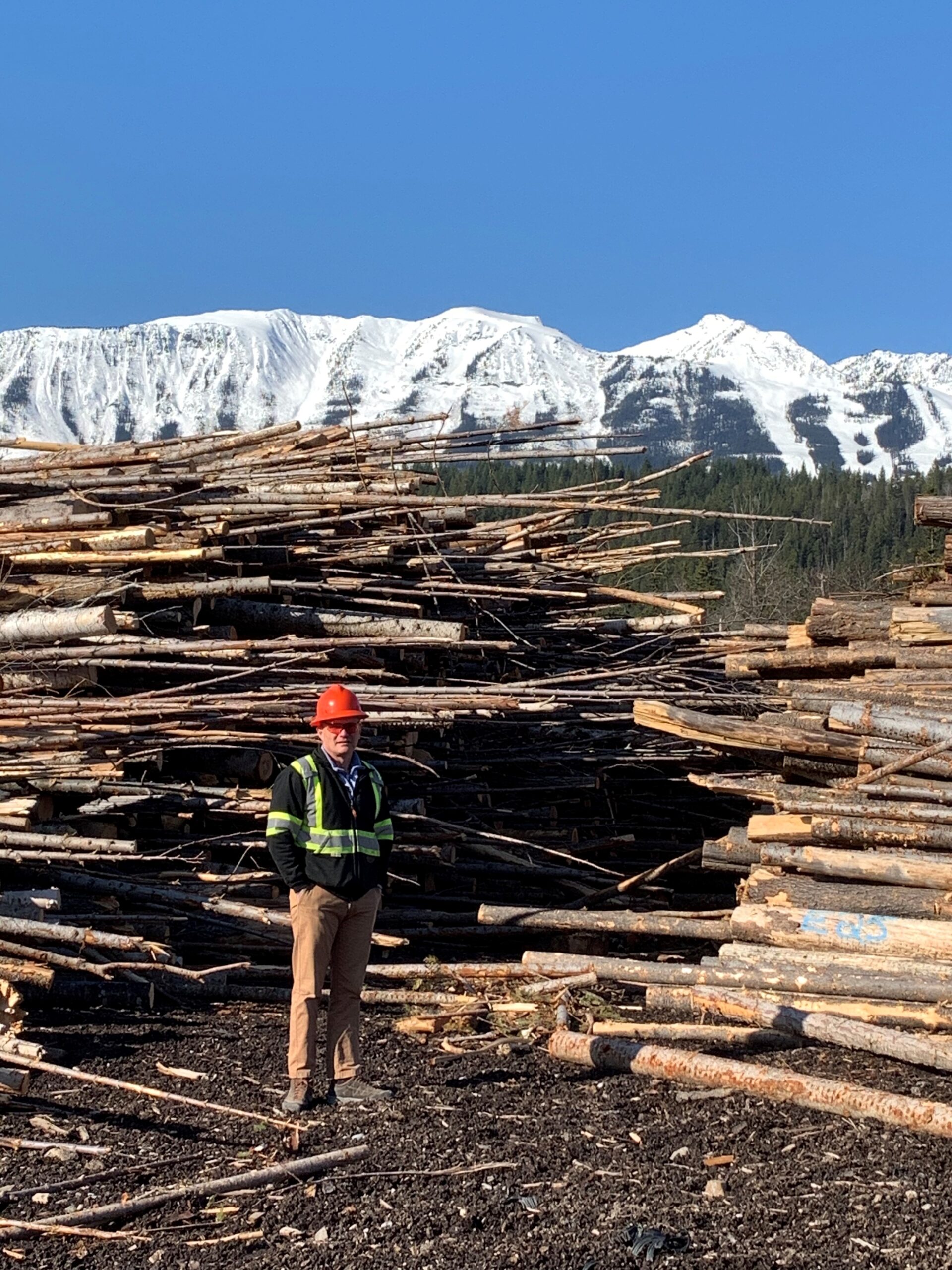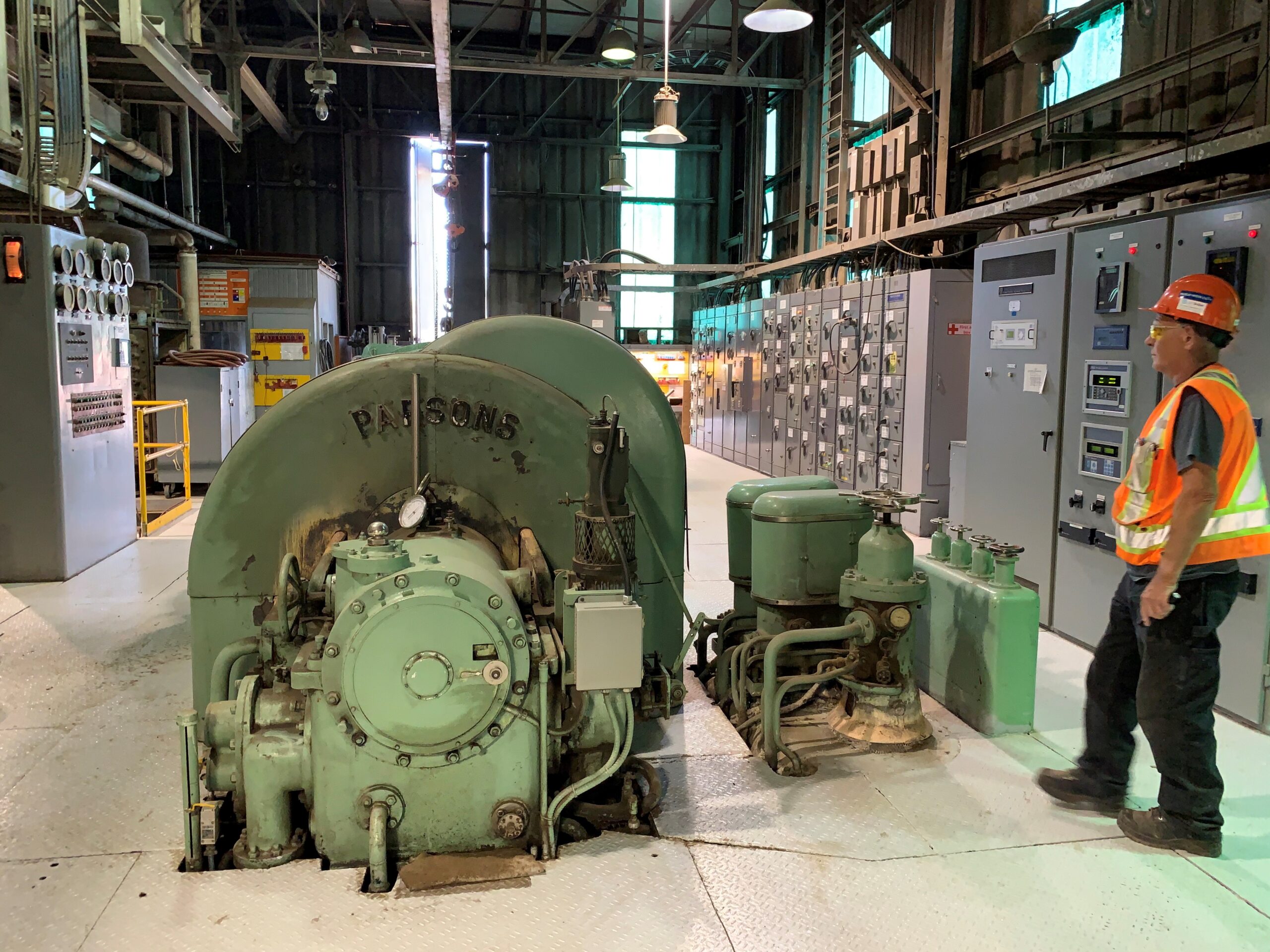Faces of Forestry is an initiative of the Forest Enhancement Society of BC (FESBC) to highlight people doing great work to enhance our forests throughout British Columbia. This month, we feature Dave Gill, general manager of Ntityix Resources LP.
Dave’s interest and passion for forestry began when he was hired as a summer student by the Pacific Forestry Research Center in Victoria, where he worked on a Spruce Bark Beetle Research project near Hixon, BC.
“I was in the woods just about every day that summer. I loved learning about the forests I was working in, the industry, and the profession itself,” he explained.
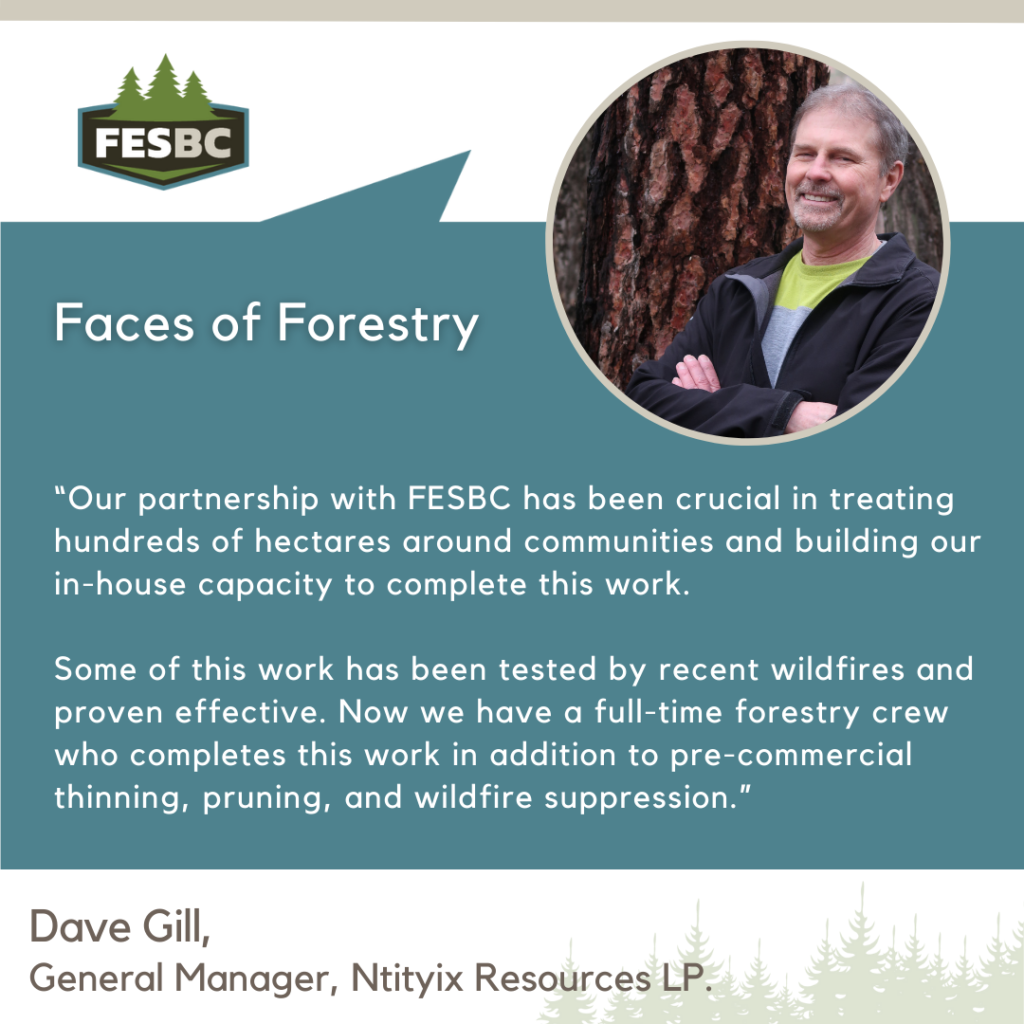
That same summer, Dave enrolled in the University of British Columbia’s Forestry program, where he graduated with a Bachelor of Science in Forestry a few years later.
Currently, Dave works as the general manager of Ntityix Resources LP, a company owned by Westbank First Nation (WFN).
“Ntityix Resources has been given the privilege and the responsibility of managing the forest tenures held by WFN with the best interests of the WFN and West Kelowna/Peachland communities in mind,” he said.
Additionally, within this role, he guides a dedicated and diverse team focused on gaining a deeper understanding of the lands they manage, with an emphasis on maintaining and enhancing the values provided by these forests.
Dave and his team have been actively collaborating with FESBC since its inception, undertaking vital wildfire mitigation projects within the Community Forest around the City of West Kelowna and the District of Peachland.
“Our partnership with FESBC has been crucial in treating hundreds of hectares around communities and building our in-house capacity to complete this work,” he explained. “Some of this work has been tested by recent wildfires and proven effective. Now we have a full-time forestry crew who completes this work in addition to pre-commercial thinning, pruning, and wildfire suppression.”
Over the past two decades, the importance of the work carried out to protect these communities and the broader landscape from the devastating wildfires has become evident.
“It’s been said so many times that we can’t control the weather, we can’t control the terrain, but we can control the forest fuels. Not only do we have to address the high priority areas near communities, we also need to take a more proactive role in managing fuels at the landscape level,” Dave added.
Throughout his career, Dave has found a deep appreciation for the multifaceted aspects of his work. He finds joy in being outdoors, acknowledging the unique connection with nature that comes with walking through a forest. Additionally, he values the people he gets to work with every day, his community, and the passion they all share for the land, which has provided him with continuous learning opportunities.
As Dave explained, the dynamic and progressive nature of forestry represents an exciting moment in the industry, regardless of the role one plays in it.
“Forestry continues to be a profession in transition. We are adopting a longer-term approach, with an Indigenous lens, to making decisions on the land. We are removing the silos and beginning to understand the inter-connectedness of all values on the land and the long-term consequences of our decisions.”
Thank you, Dave, for your commitment to wildfire mitigation and the crucial role you play in protecting our environment and communities.

